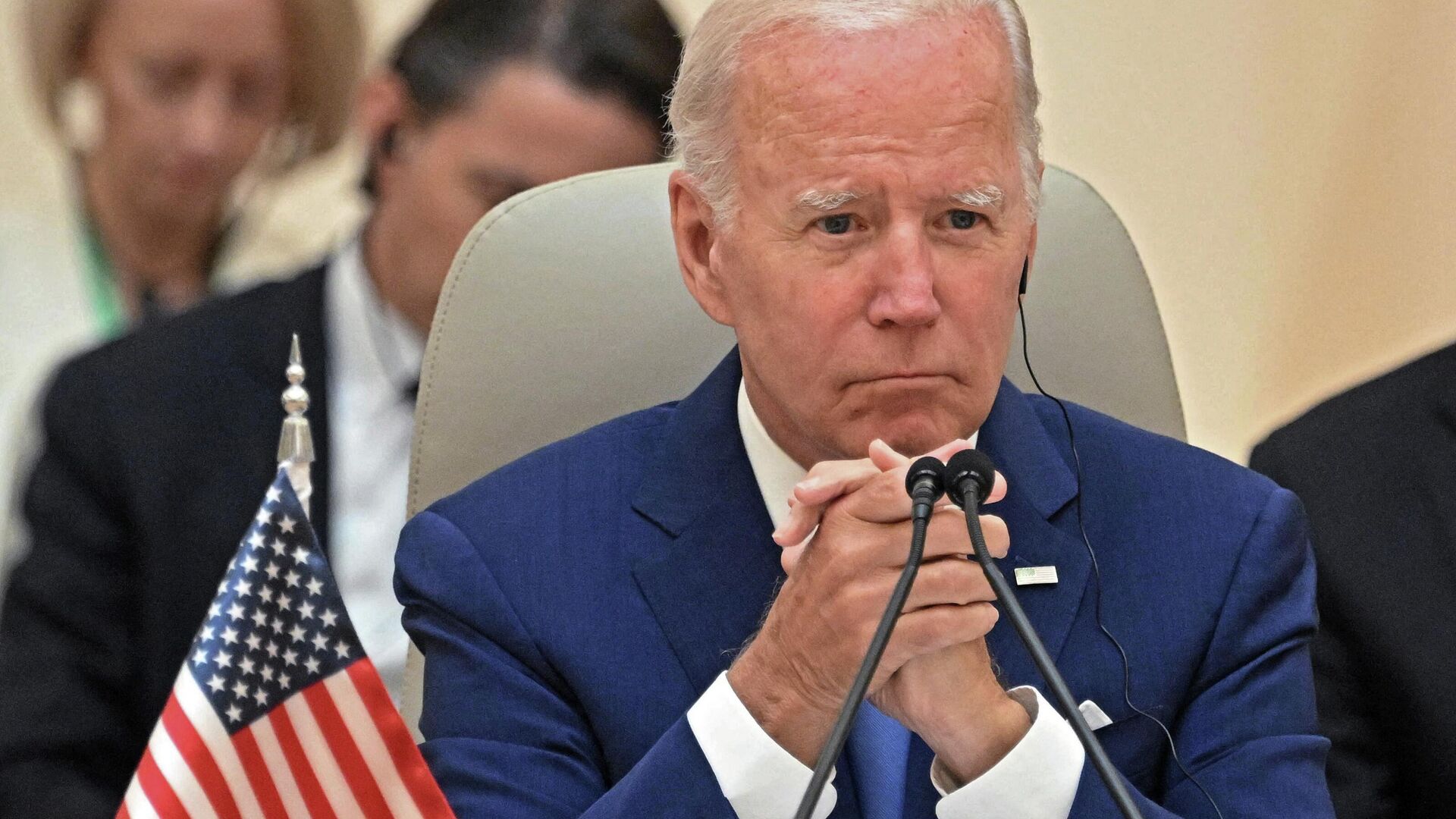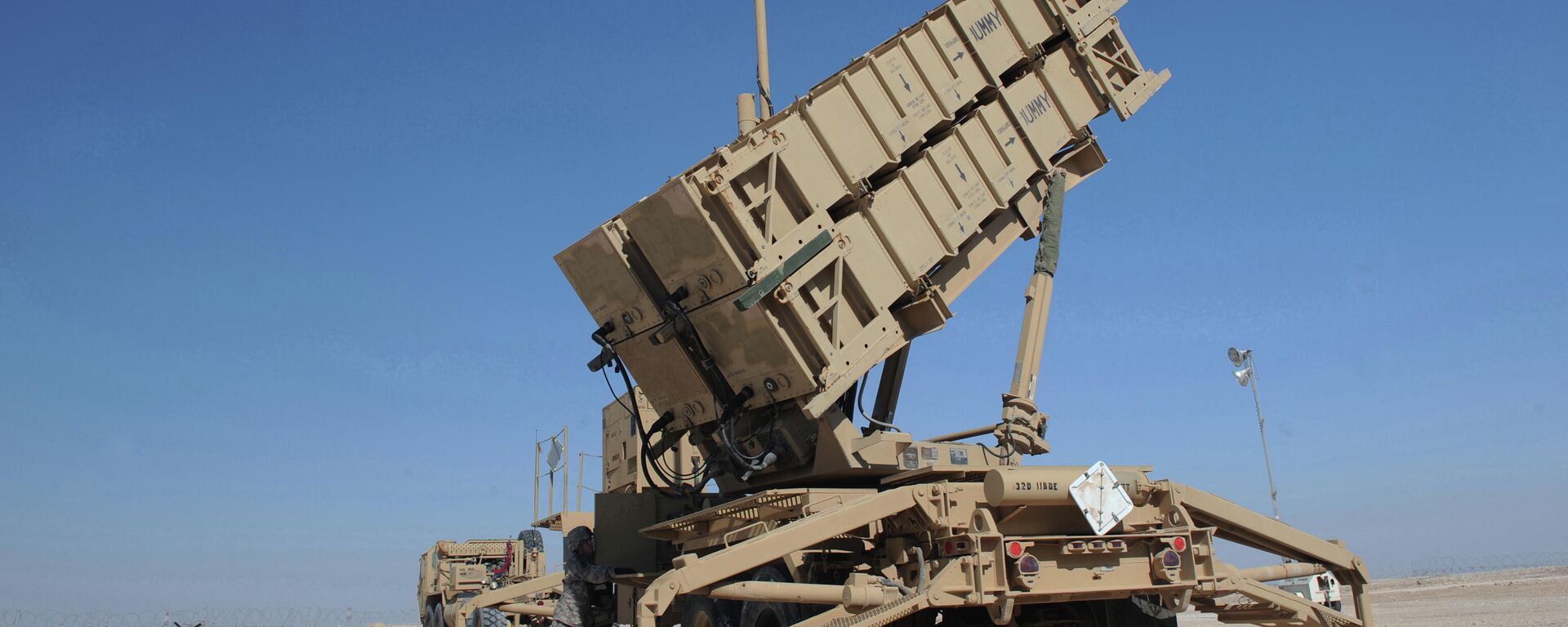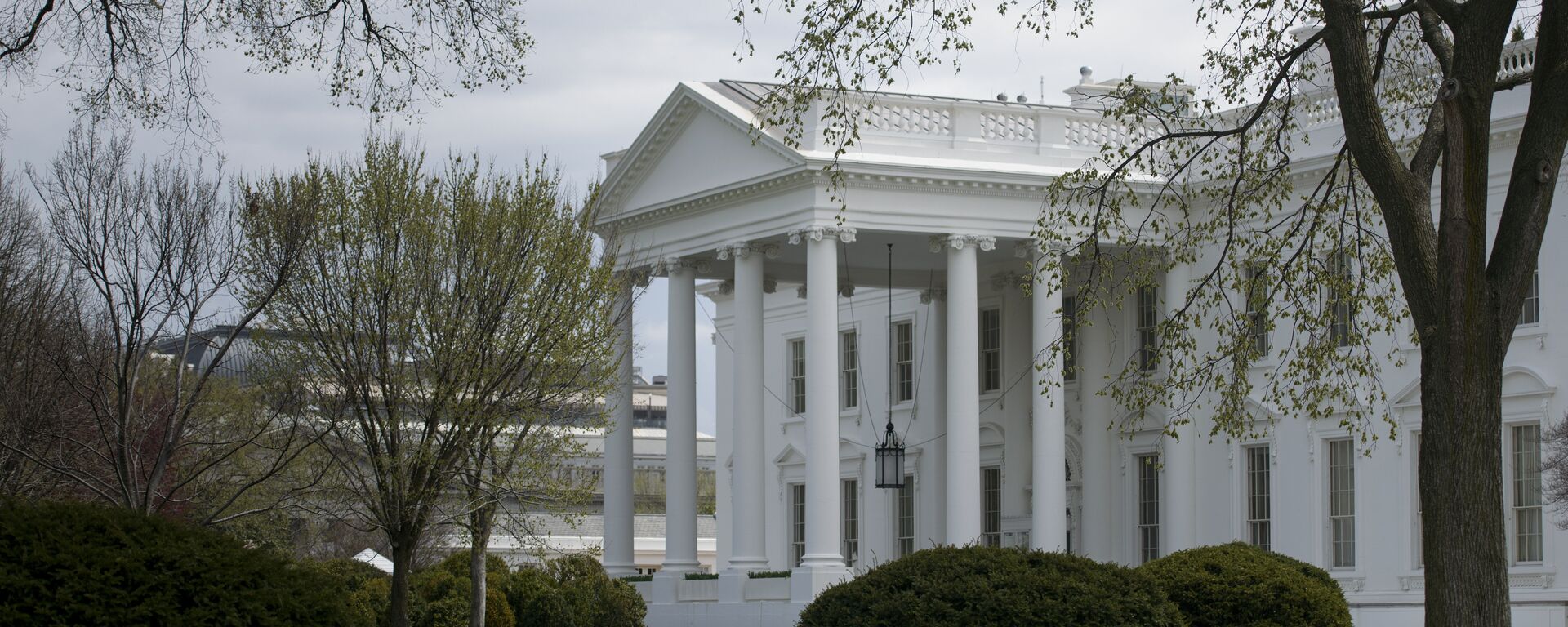https://sputnikglobe.com/20220716/arab-summit-biden-vows-to-not-walk-away-from-middle-east-yield-to-russia-china-1097381622.html
Arab Summit: Biden Vows to ‘Not Walk Away’ From Middle East, Yield to Russia, China
Arab Summit: Biden Vows to ‘Not Walk Away’ From Middle East, Yield to Russia, China
Sputnik International
The Jeddah Summit for Security and Development brings an end to Joe Biden’s Middle East tour, which kicked off earlier this week amid reports that Gulf... 16.07.2022, Sputnik International
2022-07-16T14:28+0000
2022-07-16T14:28+0000
2022-07-16T14:28+0000
us
saudi arabia
united arab emirates
joe biden
middle east
clout
region
engagement
https://cdn1.img.sputnikglobe.com/img/07e6/07/10/1097381403_0:124:3198:1923_1920x0_80_0_0_04b6bca53ce891c70714f4a8a069e9d9.jpg
US President Joe Biden has pledged that Washington plans to remain fully engaged in the Middle East and will not yield regional clout to other world powers.The Jeddah Summit for Security and Development, which was the final stop on Biden's Middle East tour, brought together the six members of the Gulf Cooperation Council (GCC), as well as Egypt, Jordan and Iraq. The GCC includes Bahrain, Kuwait, Oman, Qatar, Saudi Arabia, and the United Arab Emirates (UAE).Biden’s remarks followed US National Security Adviser Jake Sullivan saying on Friday that POTUS would "lay out clearly" his vision and strategy for US engagement in the Middle East during the GCC+3 summit.The statement came amid reports that GCC states are seeking a clear-cut commitment from the US to bolster strategic ties that have been tarnished over Washington’s alleged disengagement from the region. GCC nations refused to side with the West against Russia in the Ukraine conflict.Riyadh and Abu Dhabi, for their part, have reportedly been frustrated by US conditions on arms sales, as well as for having been excluded from indirect Washington-Tehran talks to revive the 2015 Iran nuclear deal, also known as the Joint Comprehensive Plan of Action.Similarly, the US has repeatedly pushed the UAE to drop China's Huawei Technologies Co. from its telecommunications network. Washington claims that the technology could pose a security risk for a suspended multi-billion dollar deal to buy the US-made F-35 fighter jets, in a sign of the UAE’s growing frustration with the US’ efforts to limit Chinese technology sales to the Gulf nation.As for Saudi Arabia, earlier this week, Reuters cited unnamed sources claiming that the Biden administration is considering lifting a ban on US sales of offensive weapons to the kingdom. The sources added that any final decision would depend on whether Riyadh makes progress toward ending the armed conflict in neighboring Yemen.Since March 2015, the Saudi-led Arab alliance, in cooperation with former Yemeni President Abed Rabbo Mansour Hadi’s forces, has been conducting air, land and sea operations against the Houthis. The protracted conflict has left more than 300,000 dead and brought about a major humanitarian crisis.Washington’s February 2021 announcement that it would no longer support the Saudi-led military operation in Yemen, cutting sales of precision-guided munitions (PGM) to Riyadh, further added to strained ties between Saudi Arabia and the US. Bilateral relations were earlier tarnished by the 2018 murder of Washington Post columnist Jamal Khashoggi.In June, senior US officials signaled the White House’s readiness to "reset" the bilateral relationship and move on from the Khashoggi murder in order to mend ties with Washington’s crucial Middle East ally.Khashoggi went missing in October 2018 after entering the Saudi Consulate in Istanbul. Riyadh initially denied any knowledge of the journalist's whereabouts, but eventually admitted that he had been killed inside the diplomatic mission's building in a “rogue operation.” The Saudi government sentenced several people over their role in the murder and has repeatedly rejected allegations that members of the royal family were involved.
https://sputnikglobe.com/20220322/us-has-reportedly-transferred-significant-amount-of-patriot-interceptors-to-saudi-arabia--1094096904.html
https://sputnikglobe.com/20220622/us-reportedly-developing-normalization-roadmap-for-saudi-arabia-israel-1096571695.html
saudi arabia
united arab emirates
Sputnik International
feedback@sputniknews.com
+74956456601
MIA „Rossiya Segodnya“
2022
Oleg Burunov
https://cdn1.img.sputnikglobe.com/img/07e4/09/0b/1080424846_0:0:2048:2048_100x100_80_0_0_3d7b461f8a98586fa3fe739930816aea.jpg
Oleg Burunov
https://cdn1.img.sputnikglobe.com/img/07e4/09/0b/1080424846_0:0:2048:2048_100x100_80_0_0_3d7b461f8a98586fa3fe739930816aea.jpg
News
en_EN
Sputnik International
feedback@sputniknews.com
+74956456601
MIA „Rossiya Segodnya“
Sputnik International
feedback@sputniknews.com
+74956456601
MIA „Rossiya Segodnya“
Oleg Burunov
https://cdn1.img.sputnikglobe.com/img/07e4/09/0b/1080424846_0:0:2048:2048_100x100_80_0_0_3d7b461f8a98586fa3fe739930816aea.jpg
us, saudi arabia, united arab emirates, joe biden, middle east, clout, region, engagement
us, saudi arabia, united arab emirates, joe biden, middle east, clout, region, engagement
Arab Summit: Biden Vows to ‘Not Walk Away’ From Middle East, Yield to Russia, China
The Jeddah Summit for Security and Development brings an end to Joe Biden’s Middle East tour, which kicked off earlier this week amid reports that Gulf nations, especially Saudi Arabia and the UAE, are seeking the US’ concrete commitment to improve mutual ties.
US President
Joe Biden has pledged that Washington plans to remain fully engaged in the Middle East and will not yield regional clout to other world powers.
“We will not walk away and leave a vacuum to be filled by China, Russia or Iran. We will seek to build on this moment with active, principled, American leadership,” Biden said during a summit in the Saudi city of Jeddah on Saturday.
The Jeddah Summit for Security and Development, which was the final stop on Biden's Middle East tour, brought together the six members of the Gulf Cooperation Council (GCC), as well as Egypt, Jordan and Iraq. The GCC includes Bahrain, Kuwait, Oman, Qatar, Saudi Arabia, and the United Arab Emirates (UAE).
Biden’s remarks followed US National Security Adviser Jake Sullivan saying on Friday that POTUS would "lay out clearly" his vision and strategy for US engagement in the Middle East during the GCC+3 summit.
The statement came amid reports that GCC states are seeking a clear-cut commitment from the US to bolster strategic ties that have been tarnished over Washington’s alleged disengagement from the region. GCC nations refused to side with the West against Russia in the Ukraine conflict.
Riyadh and Abu Dhabi, for their part, have reportedly been frustrated by US conditions on arms sales, as well as for having been excluded from indirect Washington-Tehran talks to revive the 2015 Iran nuclear deal, also known as the Joint Comprehensive Plan of Action.
Similarly, the US has repeatedly pushed the UAE to drop
China's Huawei Technologies Co. from its telecommunications network. Washington claims that the technology could pose a security risk for a suspended multi-billion dollar deal to buy the US-made F-35 fighter jets, in a sign of the UAE’s growing frustration with the US’ efforts to limit Chinese technology sales to the Gulf nation.
As for Saudi Arabia, earlier this week, Reuters cited unnamed sources claiming that the Biden administration is considering lifting a ban on US sales of offensive weapons to the kingdom. The sources added that any final decision would depend on whether Riyadh makes progress toward ending the armed conflict in neighboring Yemen.
At the same time, insiders claim that “the internal US deliberations are informal and at an early stage, with no decision imminent”. According to them, there are no discussions on offensive weapons between Washington and Riyadh under way “at this time.”
Since March 2015, the Saudi-led Arab alliance, in cooperation with former Yemeni President Abed Rabbo Mansour Hadi’s forces, has been conducting air, land and sea operations against the Houthis. The protracted conflict has left more than 300,000 dead and brought about a major humanitarian crisis.
Washington’s February 2021 announcement that it would no longer support the Saudi-led military operation in Yemen, cutting sales of precision-guided munitions (PGM) to Riyadh, further added to strained ties between Saudi Arabia and the US. Bilateral relations were earlier tarnished by the 2018 murder of Washington Post columnist Jamal Khashoggi.
In June, senior US officials signaled the White House’s readiness to "reset" the bilateral relationship and move on from
the Khashoggi murder in order to mend ties with Washington’s crucial Middle East ally.
Khashoggi went missing in October 2018 after entering the Saudi Consulate in Istanbul. Riyadh initially denied any knowledge of the journalist's whereabouts, but eventually admitted that he had been killed inside the diplomatic mission's building in a “rogue operation.” The Saudi government sentenced several people over their role in the murder and has repeatedly rejected allegations that members of the royal family were involved.




